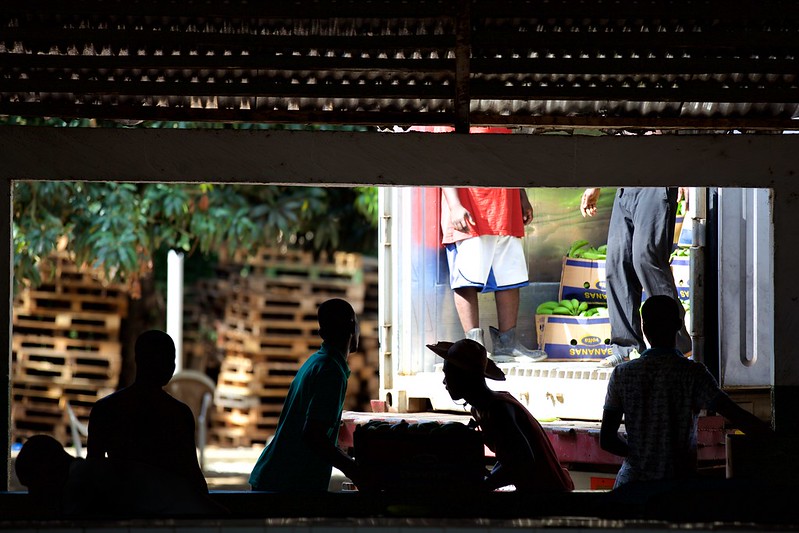The ITUC Global Rights Index 2023 was published last week showing that globally, workers’ rights are under increasing threat.
The report shows that in a staggering 79% of countries, the right to collective bargaining was violated in 2023. Looking at major trends over the last decade, the report states that the right to join a union, the right to strike and the right to justice also being increasingly violated globally. Migrant workers and temporary workers – regularly sources of plantation labour – are among those who continue to be denied the right to freedom of association. At the root of increasing labour violations are increasingly weakened democracies: ‘The link between workers’ rights being upheld and the strength of a democracy cannot be overstated. The erosion of one amounts to the degradation of the other.’ the report states.
The world’s three biggest banana exporting countries are now among the top ten worst countries for working people – with Ecuador now joining Guatemala and the Philippines in the list. Ecuador – the largest global exporter of bananas – has arrived in the top ten partly due to regressive legislation: ‘The very restrictive legal framework in Ecuador continued to hinder the development of strong, independent trade unions in the country, and the authorities continued to impede the registration of trade unions in both the public and private sectors.’ In addition, protests and strikes during 2022 were met with a violent response on the part of the authorities. Guatemala and Ecuador represent the two largest sources of bananas for the European and North American markets, respectively.
The countries with the highest rating for labour rights among major banana exporters were the Dominican Republic, Ghana and Costa Rica, and Côte d’Ivoire was the only major banana exporting region to have received an improved rating. However, the nature of banana production – a sector typified by limited mechanisation and resulting comparatively high labour costs of up to 40-50% of total costs of production, and a history of low prices per box, that often fall below the cost of sustainable production – mean that the experience of workers on banana plantations does not necessarily fall in line with national trends. Costa Rica, for example, retains a high rating on workers’ rights in the private sector despite regularly documented systematic violations of basic freedom of association in almost all banana and pineapple companies in that country.
The report concludes: ‘Only a new social contract can rebuild trust and ensure that our democracies are fit for purpose to meet the needs of working people today, and the demands of an uncertain future. A future where the climate crisis, technological change, challenges to public health and geopolitical instability will continue to provide shocks. Working people must be listened to and they must be at the centre of government decisions. To demand and support this, workers’ unions have never been more essential.’
